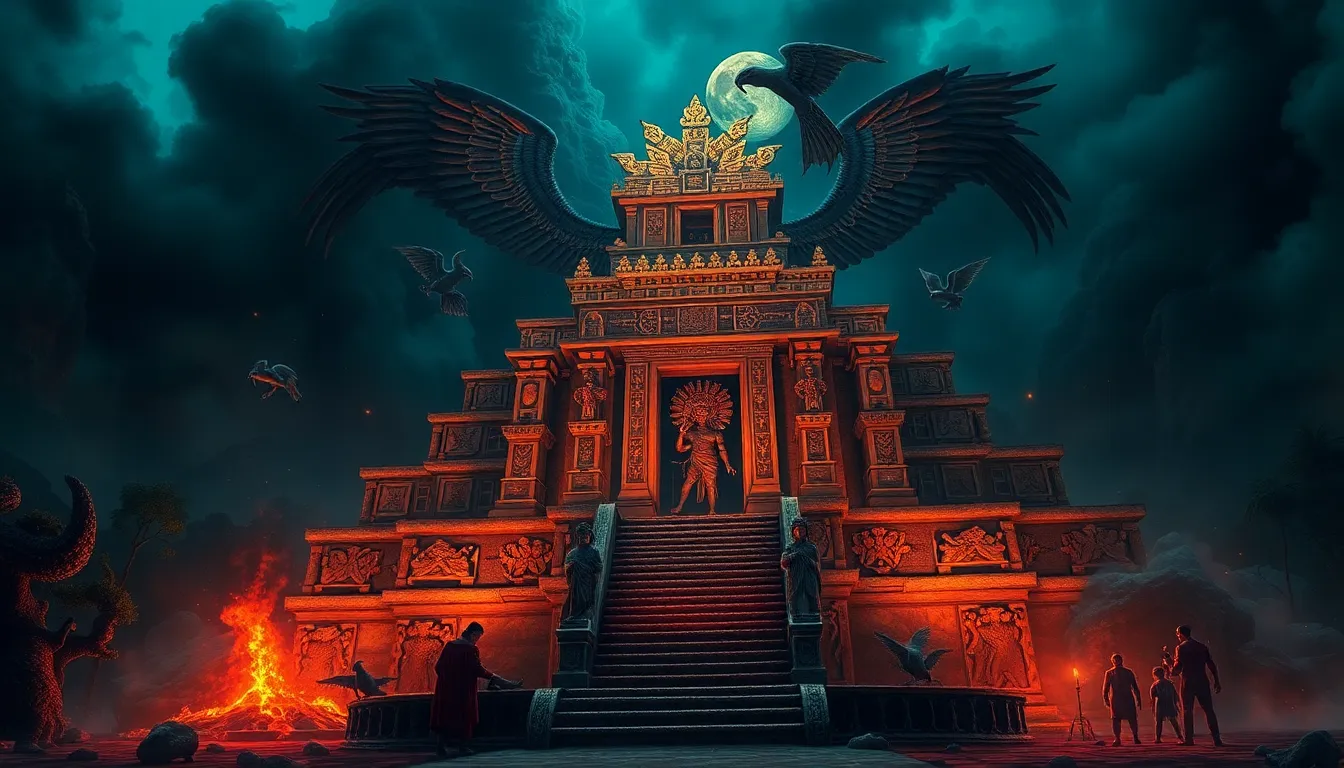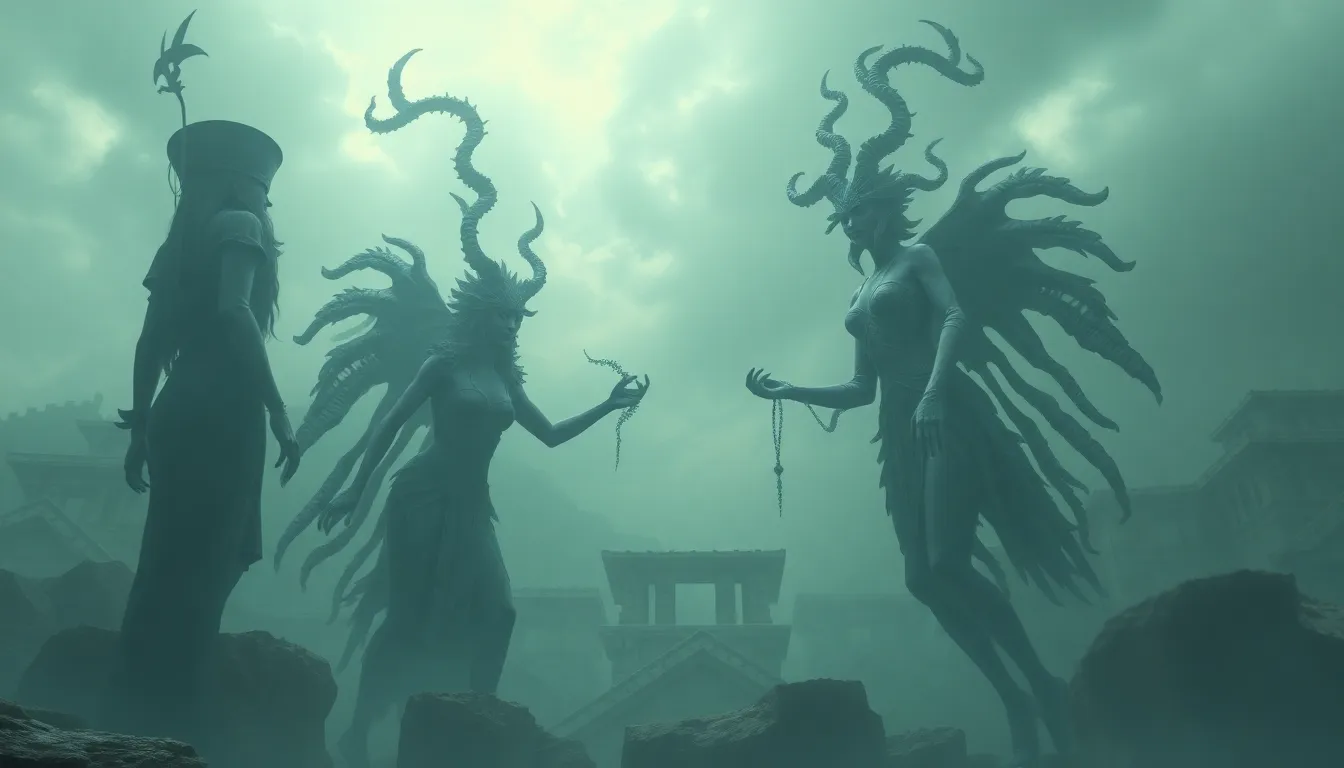The Kingdom of the Dreaming Oceans: Myths of the Deep Blue
I. Introduction to Oceanic Myths
The vast and mysterious oceans have captivated the human imagination for millennia. Across cultures and epochs, the sea has been a source of wonder, fear, and inspiration. Oceans are not merely bodies of water; they are symbolic realms that represent life’s depths and complexities. The significance of oceans in various cultures is profound, often intertwined with the very identity of the people who live by their shores.
Myths serve as a lens through which we can understand this connection. They reflect humanity’s relationship with the sea, embodying our fears, aspirations, and the mysteries of the unknown. By exploring the myths of the deep blue, we embark on a journey through time and cultures, revealing the wisdom and insights that these narratives provide.
II. The Genesis of Ocean Myths
The origins of oceanic myths can be traced back to ancient civilizations that relied on the sea for sustenance, trade, and transportation. The interplay between geography and myth-making is evident; coastal communities created stories that explained the phenomena they observed and the challenges they faced.
- Creation Myths: Many cultures have creation stories featuring the ocean as a primordial element. For instance, in some Polynesian traditions, the ocean is seen as the source of life.
- Geographical Influence: The characteristics of local waters often shaped the narratives; calm seas might inspire peaceful stories, while tempestuous waters could lead to tales of chaos and danger.
Common themes in these creation stories include the ocean’s role as a mother figure, a source of chaos, or a boundary between worlds. These themes resonate across different cultures, highlighting a universal connection to the sea.
III. Deities of the Deep: Gods and Goddesses of the Oceans
Throughout history, various cultures have revered gods and goddesses of the oceans, attributing to them traits and powers reflective of human experiences with the sea. Some of the prominent ocean deities include:
- Poseidon (Greek): The god of the sea, earthquakes, and horses, Poseidon was known for his temperamental nature. He wielded a trident and was both a protector and a punisher of sailors.
- Njord (Norse): Njord was the god of the sea and winds, revered by the Norse for his ability to bring calm seas and favorable winds for navigation.
- Yam (Canaanite): Yam, the god of the sea, represented chaos and was often depicted as a serpent. His tales often involved battles with other deities, symbolizing the struggle for order over chaos.
The relationship between humans and oceanic gods was complex, often requiring rituals and sacrifices to appease these deities. Mariners would pray for safe passage, reflecting a deep-seated belief in the power of the ocean and its gods.
IV. Legendary Creatures of the Deep Blue
The ocean is also home to an array of legendary creatures that embody the mystery and danger of the deep. Some of the most famous mythical sea creatures include:
- Mermaids and Sirens: These half-woman, half-fish beings symbolize allure and danger, often luring sailors to their doom with enchanting songs.
- Leviathans and Krakens: Massive sea monsters that represent the uncontrollable forces of nature, these creatures are often depicted as embodiments of chaos.
- Kelpies and Water Sprites: In various folklore, these shape-shifting creatures tempt humans into the water, signifying the ocean’s deceptive beauty.
The symbolism behind these creatures often reflects human fears and desires. They serve as cautionary tales about the perils of the ocean and the need for respect towards its power.
V. Cultural Variations in Ocean Myths
Ocean myths vary significantly across cultures, shaped by local ecosystems and societal values. A comparison of ocean myths reveals both unique elements and shared themes:
- Pacific Islander Myths: These myths often celebrate the ocean as a life-giving force, with stories of gods who created islands and provided fish.
- Indigenous American Tales: Many Native American cultures have creation stories that involve the ocean, emphasizing its sacredness and the interconnectedness of all life.
- European Folklore: European tales often focus on the dangers of the sea, highlighting shipwrecks and the wrath of ocean deities.
The impact of local ecosystems on myth development is evident; communities living near turbulent waters might emphasize cautionary tales, while those near calm seas might focus on prosperity and abundance. Similarities in themes, such as the ocean as a boundary or a source of wisdom, connect these diverse narratives.
VI. The Ocean as a Source of Wisdom and Prophecy
The ocean is often seen as a metaphor for the unconscious and the unknown. Many myths highlight its role in divination and prophecy, portraying the ocean as a realm where knowledge can be accessed.
Case studies of significant prophetic ocean myths include:
- The Oracle of Delphi: In ancient Greece, the oracle was believed to convey messages from the sea, linking water with divine wisdom.
- Hawaiian Prophecies: In Hawaiian culture, the ocean is viewed as a source of guidance, with stories of fishermen following the stars and tides to find their way.
Through these narratives, the ocean serves as a bridge between the tangible world and the spiritual realm, embodying both mystery and enlightenment.
VII. The Role of Ocean Myths in Navigation and Exploration
Ocean myths played a crucial role in guiding ancient mariners and explorers. Storytelling was an essential navigation technique, providing knowledge and wisdom passed down through generations.
Key aspects of this role include:
- Myth as Navigation: Many sailors relied on myths to interpret the stars, currents, and winds, using them as guides for safe passage.
- Transition to Scientific Understanding: While myths offered explanations, the advent of scientific exploration began to shift perceptions of the ocean, leading to a more empirical understanding of its nature.
Despite this transition, the echoes of ocean myths continue to resonate in contemporary navigation, reminding us of the deep-seated human connection to the sea.
VIII. Modern Interpretations of Ocean Myths
In recent years, there has been a resurgence of interest in ocean myths within contemporary literature and art. These ancient narratives continue to inspire new works and interpretations, reflecting the enduring fascination with the sea.
The influence of ocean myths on popular culture is evident in various forms:
- Films: Movies such as “Pirates of the Caribbean” and “Moana” draw heavily on oceanic mythology, bringing these ancient tales to a modern audience.
- Music: Many artists use ocean themes to evoke feelings of nostalgia and adventure, weaving mythological elements into their lyrics.
As we continue to explore the depths of the ocean both literally and metaphorically, these myths remind us of our shared human experience and the mysteries that still lie beneath the waves.



